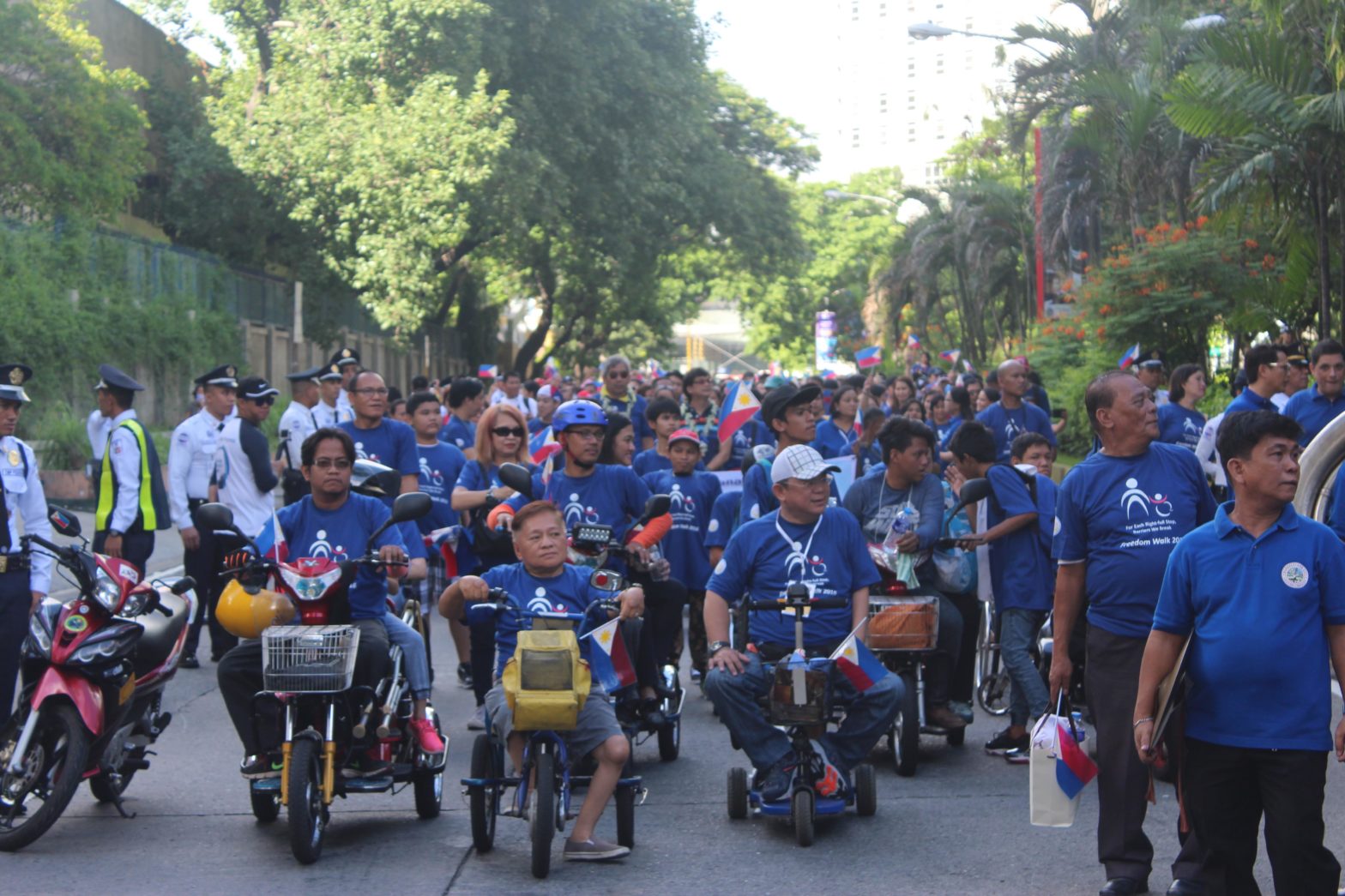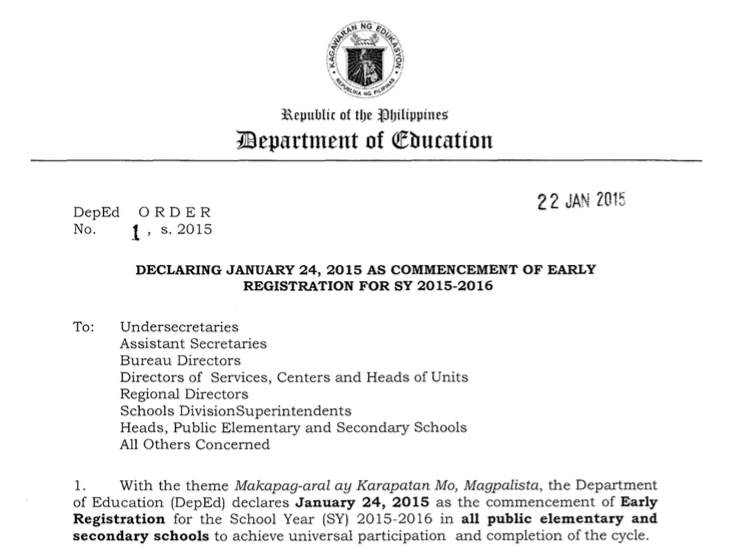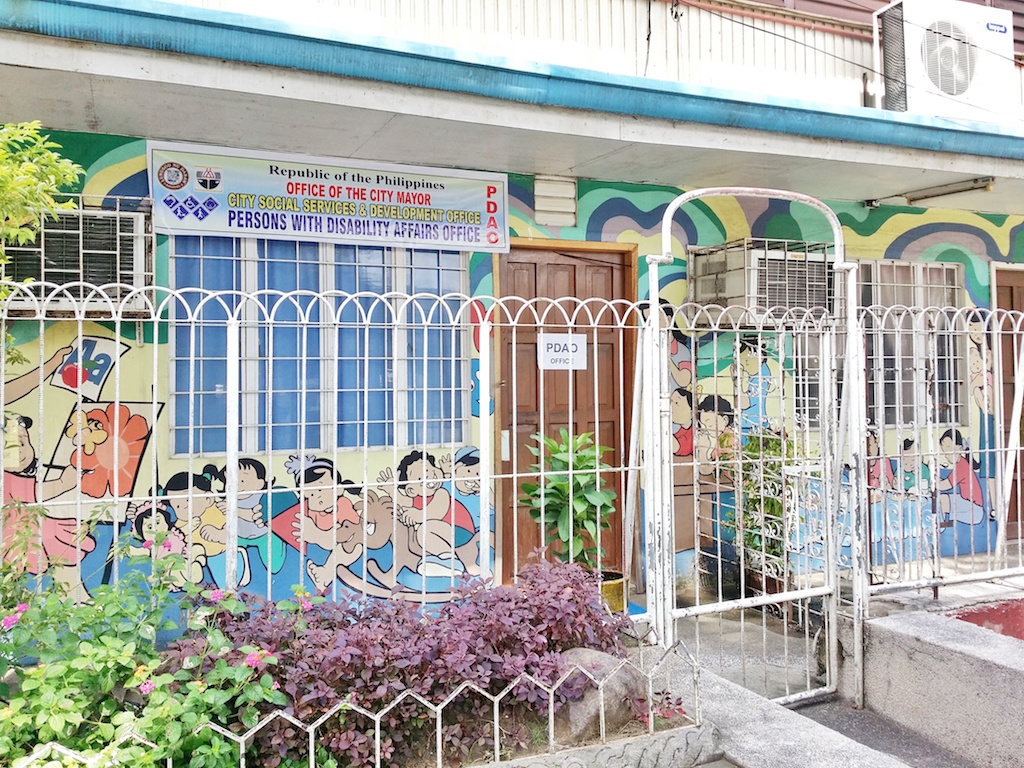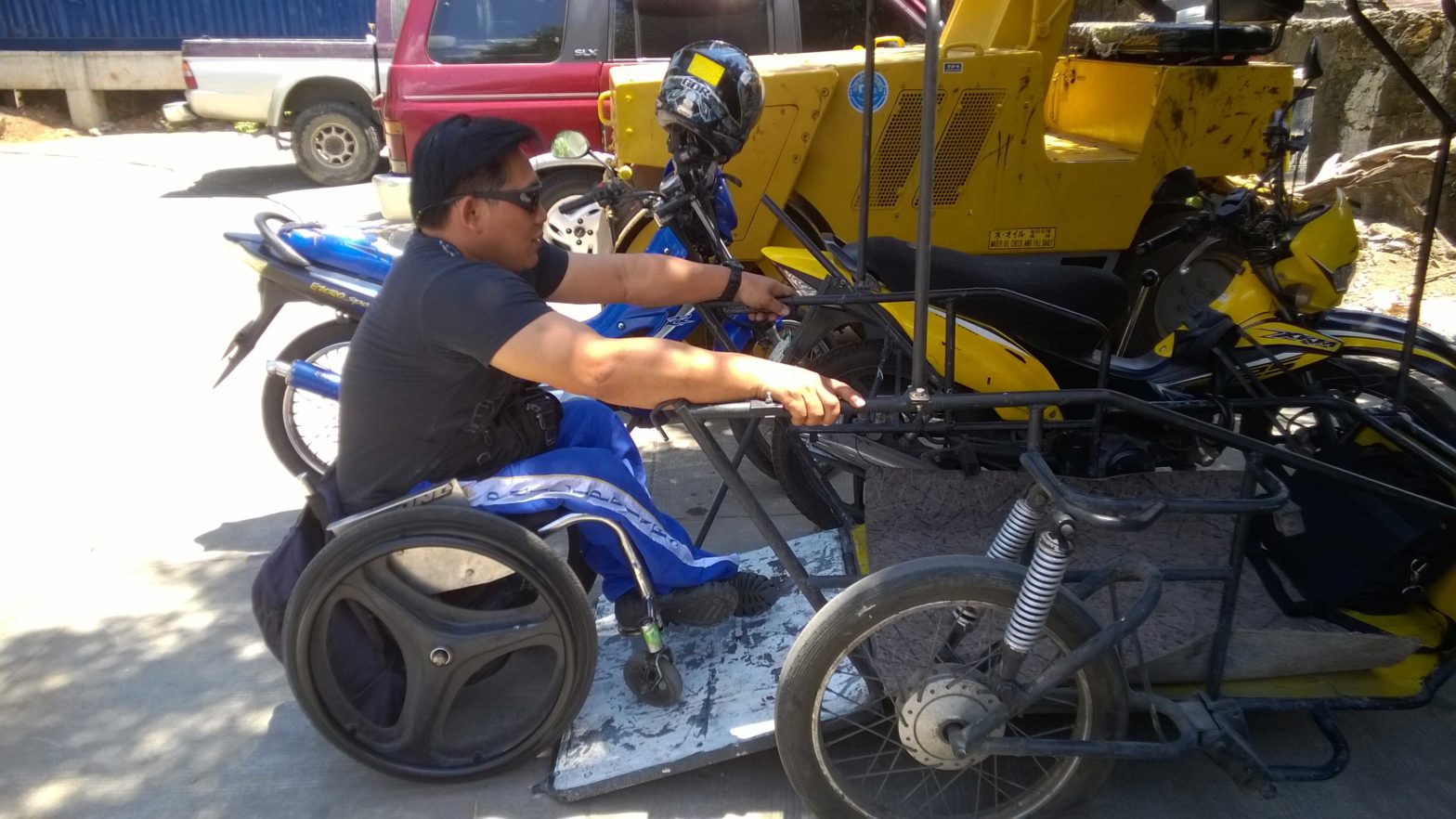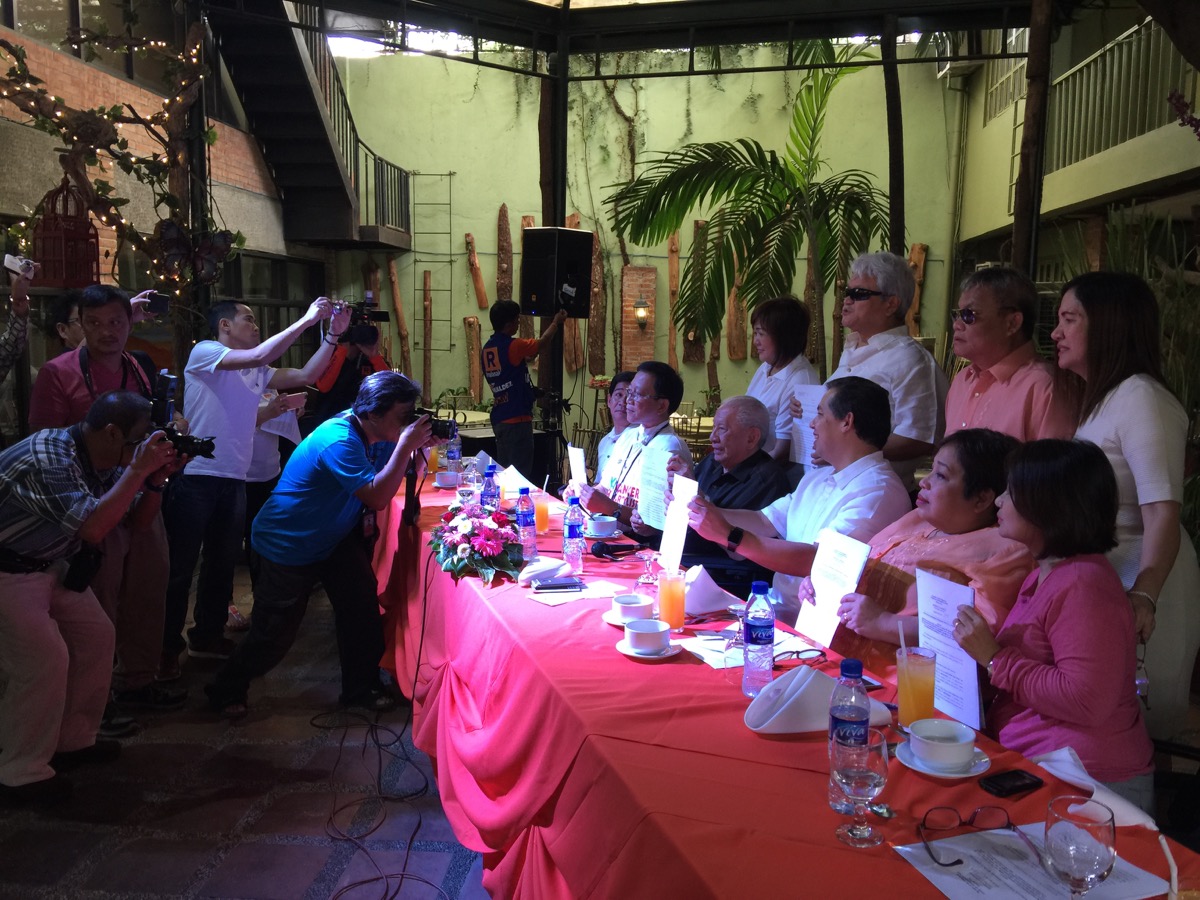Text by ARIANNE CHRISTIAN TAPAO
Photos and video by ALLAN YVES BRIONES
[metaslider id=36323]
CLAD in the blue, red and yellow colors of the Philippine flag, they are marching to freedom. As if going to war, they have armors strapped to their legs and their arms. Some are in phalanx formation, even.
They are persons with disabilities (PWDs) and they are doing the Freedom Walk, an annual event organized by Alyansa ng May Kapansanang Pinoy (AKAP-Pinoy) to raise public awareness to the disability sector.
PWDs of all ages, members of nongovernment organizations, volunteers from 18 cities and a nearby province, gathered in front of Mandaluyong City’s largest mall in the morning of June 18, a week after Independence Day.
The loud sounds of drums and lyre filled the air as Mandaluyong’s own drum and lyre band played Apo Hiking Society’s “Bawat Bata,” among others. The band is composed of children with autism and learning disabilities from different schools all over the city.
Around 1,500 participants marched to the beat of the band, from SM Megamall and back, Mandaluyong City’s PWD affairs office (PDAO) head Wennah Marquez said. The crowd estimate remains consistent with last year’s tally in the Pasay City walk.
“It’s a silent protest,” says Pete Maño, 63, of the event. “Dahil marami pang may kapansanan ang walang kalayaan (Because most of those with disabilities don’t have freedom).”
The theme for this year, “For each right-full step, barriers we break,” hits close to home for Maño who has orthopedic disability.
An officer at Mandaluyong City’s PDAO, Maño,who rode an improvised motorbike for the event, particularly echoed woes on schools’ infrastructures, recalling the last May 9 elections. (See Despite EAPPs, voting not any easier for many PWDs and senior citizens)
“Sabi namin kung pwede ibaba sa ground floor ang botohan ng mga taong may kapansanan (We asked if the polling place could be transferred downstairs for PWDs),” said Maño.
Their request was not granted and he ultimately had to climb stairs to vote.
“Literally, gumagapang [kami] kapag eleksyon (We literally crawl during elections),” he added. (See Before noon, problems abound for voters with disabilities nationwide)
This, despite the 33-year-old Accessibility Law or Republic Act No. 344 which requires institutions including schools to be enhanced to cater to persons with disabilities. (See Most schools used as voting precincts not PWD-friendly, audit shows)
Although problems in schools continue to be a burden for PWDs, Maño was quick to note that Mandaluyong City was the first in the Philippines to establish a PDAO where he works at now. (See PDAOs in Metro Manila: Mandaluyong)
Mandaluyong City mayor Benjamin Abalos Jr. said the city has advanced a lot in catering to people with disabilities, one project of which was given a United Nations public service award.
Abalos attended the
opening ceremonies, receiving a trophy from a Pasay City representative signifying the turnover of host cities for the PWD-friendly event.
First steps to freedom
Although the majority of the attendees were persons with mobility disability like Maño, children and adults with learning, intellectual, visual, hearing disabilities and autism also joined the walk.
It was the first Freedom Walk for Annie Ignacio and her 18-year-old son Angelo, who has autism spectrum disorder.
The mother, who admitted to have had a high-risk pregnancy with Angelo, said she almost gave in to loneliness after learning of her son’s disability. “‘Pag tumanda ako iniisip ko, paano siya, (I am thinking when I get old, how will he be)?”
She was only convinced to see her and her son’s situation in a different light after consultations with different doctors and organizations, much like those who congregated for the Freedom Walk.
Ignacio did not have any clue about the walk’s logistics, nor did she know if Mandaluyong City was the event’s host. All she knows, she said, is that public schools catering to students with disabilities, including Eulogio Reyes Integrated School where Angelo goes, had been required to go.
But all of that mattered little for Ignacio and her son who felt a sense of belonging with the others who attended the event.
“Masaya [ako] (I’m happy),” Ignacio said, “kasi nakikita ko ‘yung iba’t ibang klase ng mga disabilities… Nagkakaintindihan kami kasi pare-pareho kami (because I see different PWDs and we understand each other because we’re the same).”
As she talked, Angelo, whom she had been holding tightly in her arms for fear of him loitering away, kissed her on the cheek.
Joyce Lopez, 30, a blind person who works for the nongovernment Resources for the Blind Inc. (RBI) which gives services to people with visual impairment, is also happy that she attended the event.
She expects that events like these can “open eyes” that PWDs are “no different with those without disabilities,” she said.
“In that way, nakikita nila na kaya rin ng mga PWDs (In that way, they can see that PWDs can, too),” Lopez said.
Although she has attended the Freedom Walk in Taguig before, Lopez added that this was the first time RBI joined AKAP-Pinoy in the event, bringing 25 delegates including “sighted staff” to support persons with disabilities in the walk.
Mandaluyong City is this year’s AKAP-Pinoy partner in organizing the walk. The first and second Freedom Walk took place in Quezon City, the third in Taguig City and the fourth in San Juan City.
Captain Oscar Taleon, AKAP-Pinoy president, said there have been early talks with Marikina City officials for next year’s event, and it can only get bigger from here.
As with Pasay, Mandaluyong and the previous ones, Captain Taleon said AKAP-Pinoy organizes the event with a “sustaining call” in mind.
“We’re just reminding the government of their duties to us,” he said. “In the sense that all government agencies should have a program regarding disability.”
While sustainable measures to mainstream PWDs to society have been done, citing cities like Mandaluyong and Quezon City among others, Taleon said the country is still far from achieving freedom with problems of “exclusion, discrimination, inequality” still prevalent.
“Our freedom would depend on how we demolish the barriers that hinder our full and effective participation,” he said, adding that right now, “It’s still wanting.”
(The authors are University of the Philippines students writing for VERA Files as part of their internship.)
